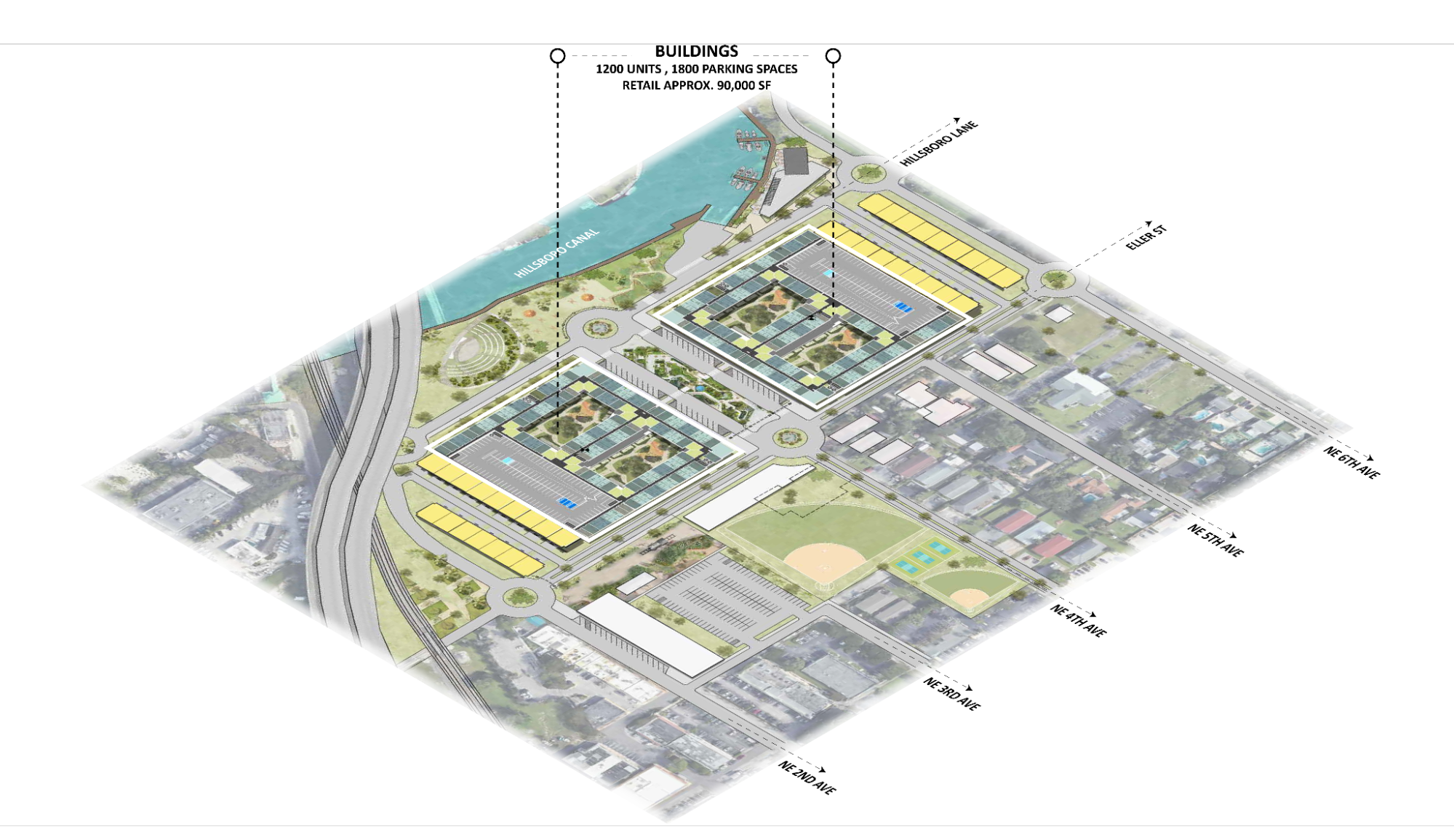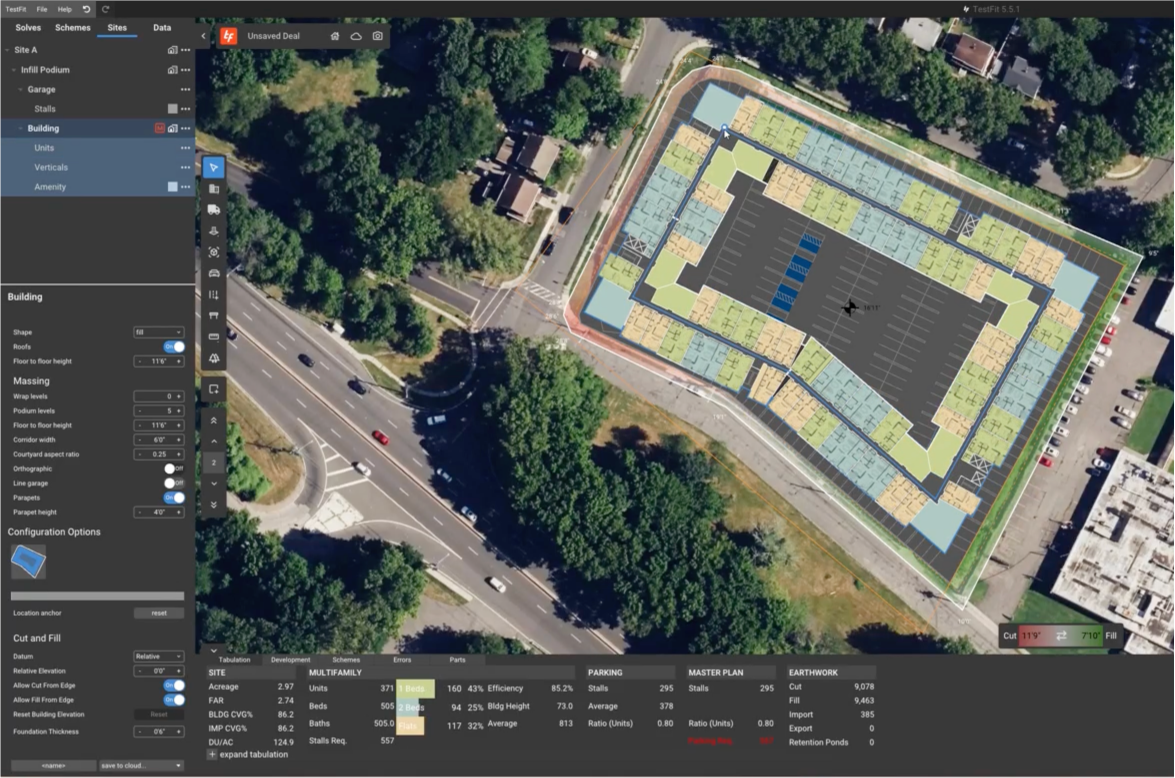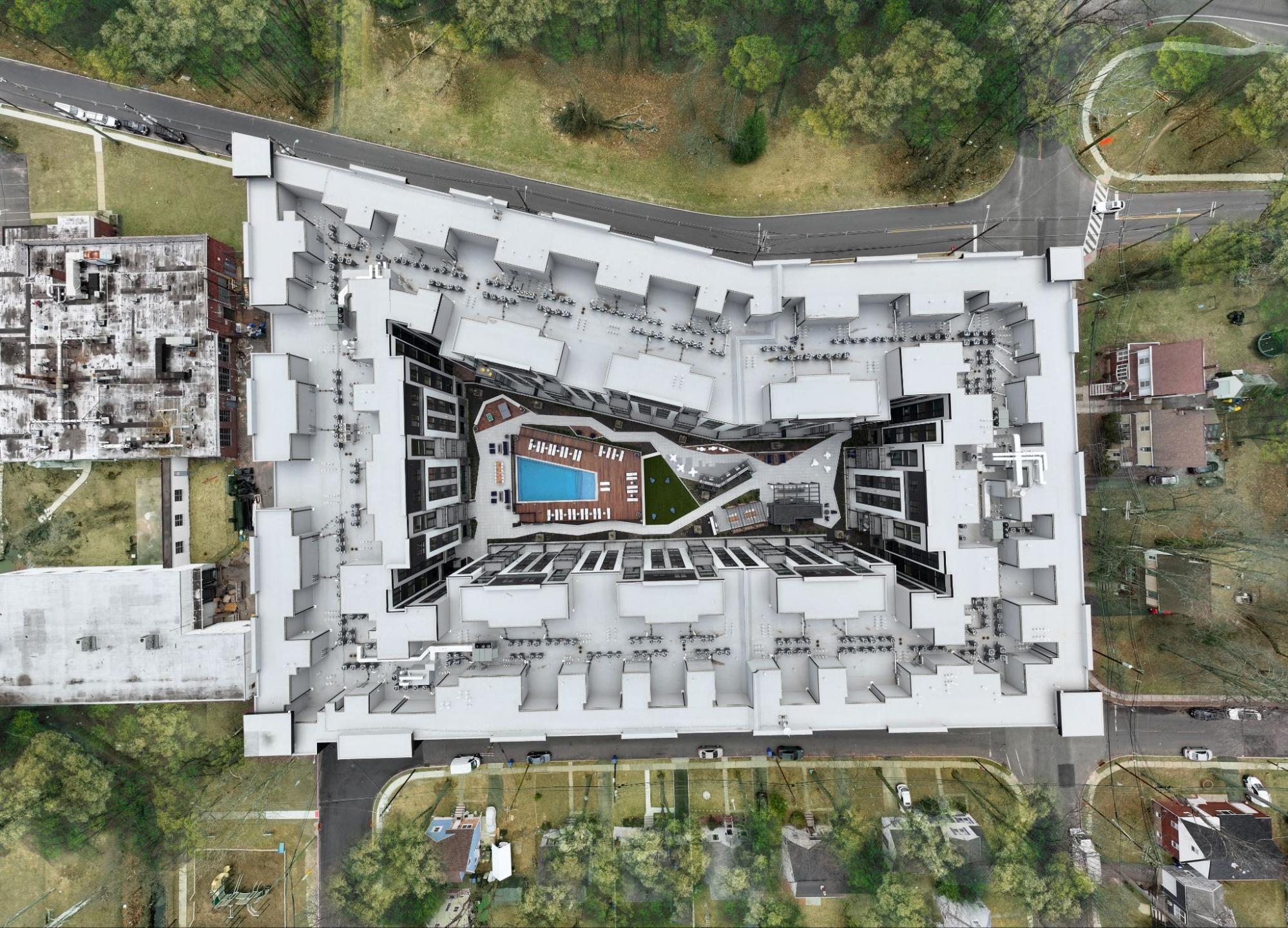Coming from a development background, CPA Architects, a New Jersey-based architecture firm, approaches every project with a pro forma lens. For their team, it’s not just about designing a beautiful building; it’s about making sure a project is financially viable from the start.

Since 2018, CPA Architecture has utilized TestFit as a core component of their feasibility workflow for multi-family projects, resulting in increased project efficiency, enhanced design precision, and improved ROI for their clients.
{{chris-pereira-testimonial-1="/rtc/testimonials"}}
90% of Projects Run Through TestFit Feasibility
Before TestFit, feasibility meant trace paper, CAD overlays, and manually counted unit blocks, a slow process that often delayed client decisions.
{{chris-pereira-testimonial-2="/rtc/testimonials"}}
With TestFit, that workflow has collapsed into real-time modeling and instant pro forma feedback. According to Chris, TestFit is now completely integrated into CPA’s feasibility process, especially for projects over 40–50 units, which make up 90% of their portfolio.

Note: The building above is in Florida, but the statement below does not refer to that project.
In one major New Jersey project, the final constructed building closely mirrored the original TestFit layout, including unit count and massing. CPA Architecture found that larger buildings benefit even more from CPA’s robust unit library, driving alignment between early feasibility and final design.
$200K in Annual Savings on Feasibility Work
CPA estimates TestFit helps their architects deliver 3x more feasibility work with the same resources—a direct result of faster design cycles, higher iteration capacity, and reusable unit libraries tailored to client needs.
Since using TestFit, they’re able to empower their junior designers to contribute at a high level early in their careers. In her first year, designer Erika Romero designed thousands of units using TestFit—while learning the fundamentals of unit efficiency and financial viability.
{{chris-pereira-testimonial-3="/rtc/testimonials"}}

This efficiency results in $150K-$200k in savings a year in operational expenses, while producing faster and higher-quality feasibility studies to win more work with their clients.
But the biggest savings for CPA Architecture?
It’s the savings they bring to their clients, which in turn wins them more repeat work.
{{chris-pereira-testimonial-4="/rtc/testimonials"}}
$ Millions in Client Savings Through Pro Forma–Driven Design
TestFit doesn’t just save CPA internal time—it helps their clients avoid costly mistakes. With rapid iteration and real-time data, the team can test dozens of schemes to find what pencils… or prove when it doesn’t.
While some of CPA’s developer clients attempt to use TestFit on their own, the CPA’s team is confident that they can improve the layouts by 50% by utilizing their deep zoning and code knowledge with site planning AI.

TestFit allows CPA to combine speed with intentionality—factoring in important multi-family parameters like stair cores, elevators, light access, unit depths, and efficiency ratio.
{{ivania-rivera-testimonial-1="/rtc/testimonials"}}
Unlike most design firms, CPA’s feasibility process also includes financial modeling. With real-time insights into cost, CPA is able to take the financial data and quantity takeoff to run their own pro formas, helping their clients make development decisions faster. Instead of overdesigning, CPA helps developers stay realistic.
{{chris-pereira-testimonial-5="/rtc/testimonials"}}
“The Value Far Outweighs the Price”
Chris brings a developer’s mindset to architecture—using TestFit to model and communicate financial outcomes from day one. After spending the past two decades blending design creativity with a sharp understanding of development economics, CPA sees the software cost as a non-issue relative to the client value and internal efficiency they gain.
{{chris-pereira-testimonial-6="/rtc/testimonials"}}









